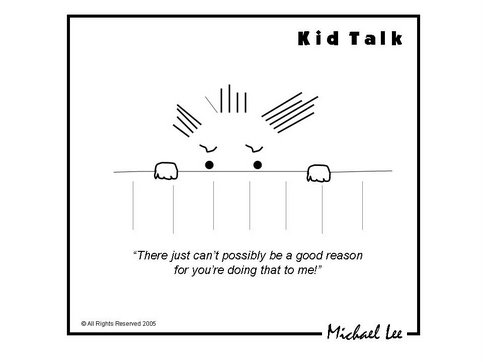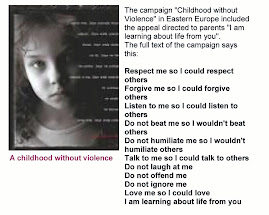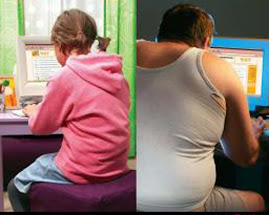

Monday, 11 June 2007
2007 06: Spotlight: NOBODY’S CHILD...
NST online. Frontpage. 9/06/07
K.S. USHA DEVI
Despite numerous social safety nets, babies are still being abandoned regularly.Better sex education and advice for the young may be the best way to save babies from being dumped, writes K. S. USHA DEVI
DRESSED in a green T-shirt and short pants, the toddler hugs his brown teddy bear and gurgles.
One-year-old Alif Firdaus Abdullah looks happy and comfortable in his playpen at the Pernim orphanage in Cheras.
He is a long way from the ordeal that marked the start of his innocent life: Alif was abandoned by his unwed mother at a hospital in Kelantan.
But two months later, Norlina Alawi, who runs the Nurul Iman Welfare Society/Foundation for Children of People Living with HIV/AIDS (Pernim), took Alif in. She also takes care of two other abandoned babies, Darus Aiman and Mohd Aiman Abdullah and three dozen other children.
"Their mothers could not take care of them, so I brought them home when they were a few months old," said Norlina, who turned her home into an orphanage.
Alif is fortunate. In many instances, abandoned babies die because their mothers, mostly under-aged, unwed or unable to take care of them, cast them aside.
These babies are left in waste dumps, rivers, bushes, drains and public toilets, among other places.
Although there are many helping hands to provide for unwed mothers, they still abandon their babies because of the social stigma and legal implications attached to a baby born out of wedlock.
They are afraid of bringing shame to their families, of being ostracised by fellow students or friends, or losing their marital prospects, especially if they are from conservative families.
Under the Child Act 2001, the mother could also be jailed up to 10 years and/or fined up to RM20,000. (Currently, men escape responsibility for fathering children out of wedlock because the law does not require them to give their DNA sample to prove paternity).
But help is available for unwed mothers to deal with their pregnancy, said Women, Family and Community Development Minister Datuk Seri Shahrizat Abdul Jalil. And a shelter home can be provided for both mother and baby by the Welfare Department.
Shahrizat said: "We are there for them. They need to call the nearest welfare office to seek help."Drop-in baby hatches for abandoned babies, a solution in European countries, are not an option considered by the government at the moment, said Shahrizat, because it might be seen as sending the wrong signal to young people.
Former assistant director of the Social Welfare Department Vijayakumari Pillai agreed that it might encourage young women, especially teenagers, to treat sexual encounters lightly and not bother about precautions.
Drop-in hatches for babies in hospitals, schools or office buildings are used in European countries to keep abandoned babies safe from danger and assist the mother in finding an adoptive home or orphanage.
The baby hatch is usually a small structure equipped with a heated cot. As soon as the woman leaves the child in the cot, without being seen, an alarm goes off so that a medical practitioner or a social worker can care for the baby.
While Malaysia has no baby hatches or shelters, advocacy programmes on family planning and reproductive health at grassroots levels are run by the Welfare Department through its agency, the National Population and Family Development Board and non-government organisations.
Since 1992, the department has also had child protection teams at district level to monitor, advise and counsel families on reproductive health and issues, said Social Welfare Department director-general Rafek Reshidullah.
"The latest advocacy programme, Parenting @Work, early this year was aimed at educating parents about balancing their responsibilities between work and family.
"This is to ensure that their children will not be left unattended, and get involved with social ills." Some of these abandoned little ones are also placed under the care of individuals such as Alif’s caretaker, Norlina, who runs a welfare entity registered under the department.
Another solution to discourage young pregnant women from abandoning their babies is for them to take refuge in shelter homes until the baby is born.The department has five of these safe havens, called Taman Seri Putri, in the country. These places shelter teenage mothers below the age of 18. (Unwed mothers over 18 are taken in by NGOs).
Besides undergoing counselling for adoption (if needed) and fostering to help them deal with their predicament, the young women are taught living skills such as tailoring, basic accounts and computer courses over their two- to three-year stay there.
However, shelter homes such as these are shrouded under a cloak of secrecy."Shelter homes or safe havens for young women are still not publicly known," said Maria Chin Abdullah, executive director of Women’s Development Collective, an NGO promoting full participation of women in Malaysian society.
"But since baby hatches are not considered feasible, the state should take the responsibility to have more shelter homes for these young pregnant women."
Although there are positive efforts, babies still continue to be dumped. Statistics from Bukit Aman revealed 320 reported cases of abandoned babies from 2003 to last year. The highest number for all four years was in Selangor.
Newborns form the highest num- ber of abandoned babies, with a total of 79 reported cases last year.
"This is because many young women believe that pregnancy will not happen to them. When it does and they don’t know where to turn to, they abandon the baby," said Vijayakumari, who has 22 years of experience in the department.
Both Vijayakumari and Chin urged the government to focus on sex education and guidance for the young and provide appropriate services for reproductive health so that teenage pregnancies could be reduced.
Meanwhile the Federation of Family Planning Associations (FFPAM) has run peer-to peer programmes for young people on adolescent sexual and reproductive health for many years.
This includes learning about safe sex, use of contraceptives and abortion, among others. "With sex education, 10 years down the road, the problem of abandoned babies could be reduced," Chin said.
K.S. USHA DEVI
Despite numerous social safety nets, babies are still being abandoned regularly.Better sex education and advice for the young may be the best way to save babies from being dumped, writes K. S. USHA DEVI
DRESSED in a green T-shirt and short pants, the toddler hugs his brown teddy bear and gurgles.
One-year-old Alif Firdaus Abdullah looks happy and comfortable in his playpen at the Pernim orphanage in Cheras.
He is a long way from the ordeal that marked the start of his innocent life: Alif was abandoned by his unwed mother at a hospital in Kelantan.
But two months later, Norlina Alawi, who runs the Nurul Iman Welfare Society/Foundation for Children of People Living with HIV/AIDS (Pernim), took Alif in. She also takes care of two other abandoned babies, Darus Aiman and Mohd Aiman Abdullah and three dozen other children.
"Their mothers could not take care of them, so I brought them home when they were a few months old," said Norlina, who turned her home into an orphanage.
Alif is fortunate. In many instances, abandoned babies die because their mothers, mostly under-aged, unwed or unable to take care of them, cast them aside.
These babies are left in waste dumps, rivers, bushes, drains and public toilets, among other places.
Although there are many helping hands to provide for unwed mothers, they still abandon their babies because of the social stigma and legal implications attached to a baby born out of wedlock.
They are afraid of bringing shame to their families, of being ostracised by fellow students or friends, or losing their marital prospects, especially if they are from conservative families.
Under the Child Act 2001, the mother could also be jailed up to 10 years and/or fined up to RM20,000. (Currently, men escape responsibility for fathering children out of wedlock because the law does not require them to give their DNA sample to prove paternity).
But help is available for unwed mothers to deal with their pregnancy, said Women, Family and Community Development Minister Datuk Seri Shahrizat Abdul Jalil. And a shelter home can be provided for both mother and baby by the Welfare Department.
Shahrizat said: "We are there for them. They need to call the nearest welfare office to seek help."Drop-in baby hatches for abandoned babies, a solution in European countries, are not an option considered by the government at the moment, said Shahrizat, because it might be seen as sending the wrong signal to young people.
Former assistant director of the Social Welfare Department Vijayakumari Pillai agreed that it might encourage young women, especially teenagers, to treat sexual encounters lightly and not bother about precautions.
Drop-in hatches for babies in hospitals, schools or office buildings are used in European countries to keep abandoned babies safe from danger and assist the mother in finding an adoptive home or orphanage.
The baby hatch is usually a small structure equipped with a heated cot. As soon as the woman leaves the child in the cot, without being seen, an alarm goes off so that a medical practitioner or a social worker can care for the baby.
While Malaysia has no baby hatches or shelters, advocacy programmes on family planning and reproductive health at grassroots levels are run by the Welfare Department through its agency, the National Population and Family Development Board and non-government organisations.
Since 1992, the department has also had child protection teams at district level to monitor, advise and counsel families on reproductive health and issues, said Social Welfare Department director-general Rafek Reshidullah.
"The latest advocacy programme, Parenting @Work, early this year was aimed at educating parents about balancing their responsibilities between work and family.
"This is to ensure that their children will not be left unattended, and get involved with social ills." Some of these abandoned little ones are also placed under the care of individuals such as Alif’s caretaker, Norlina, who runs a welfare entity registered under the department.
Another solution to discourage young pregnant women from abandoning their babies is for them to take refuge in shelter homes until the baby is born.The department has five of these safe havens, called Taman Seri Putri, in the country. These places shelter teenage mothers below the age of 18. (Unwed mothers over 18 are taken in by NGOs).
Besides undergoing counselling for adoption (if needed) and fostering to help them deal with their predicament, the young women are taught living skills such as tailoring, basic accounts and computer courses over their two- to three-year stay there.
However, shelter homes such as these are shrouded under a cloak of secrecy."Shelter homes or safe havens for young women are still not publicly known," said Maria Chin Abdullah, executive director of Women’s Development Collective, an NGO promoting full participation of women in Malaysian society.
"But since baby hatches are not considered feasible, the state should take the responsibility to have more shelter homes for these young pregnant women."
Although there are positive efforts, babies still continue to be dumped. Statistics from Bukit Aman revealed 320 reported cases of abandoned babies from 2003 to last year. The highest number for all four years was in Selangor.
Newborns form the highest num- ber of abandoned babies, with a total of 79 reported cases last year.
"This is because many young women believe that pregnancy will not happen to them. When it does and they don’t know where to turn to, they abandon the baby," said Vijayakumari, who has 22 years of experience in the department.
Both Vijayakumari and Chin urged the government to focus on sex education and guidance for the young and provide appropriate services for reproductive health so that teenage pregnancies could be reduced.
Meanwhile the Federation of Family Planning Associations (FFPAM) has run peer-to peer programmes for young people on adolescent sexual and reproductive health for many years.
This includes learning about safe sex, use of contraceptives and abortion, among others. "With sex education, 10 years down the road, the problem of abandoned babies could be reduced," Chin said.
Subscribe to:
Post Comments (Atom)



No comments:
Post a Comment